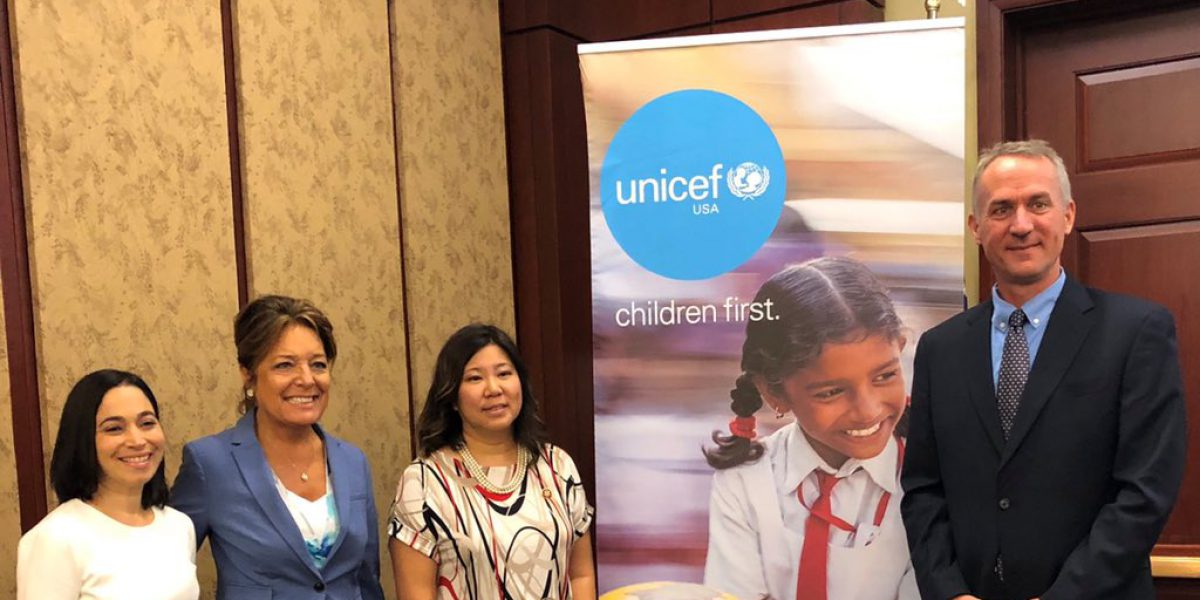
On September 19, Jesuit Refugee Service/ USA co-hosted an event on Capitol Hill featuring experts from the United Nations Children’s Fund (UNICEF), Education Cannot Wait (ECW), Global Citizen, and the Global Campaign for Education-US to discuss the work being done to help the 75 million children and youth who have had their education disrupted by humanitarian crises.
Congresswoman Grace Meng (D-NY) provided opening remarks and discussed the work she’s championing to advocate for vulnerable populations, including refugees and migrants. Recently, she introduced new legislation to help migrant families and children at the U.S.-Mexico border. Rep. Meng’s bill, “Stop Cruelty to Migrant Children Act,” would guarantee that migrant families and children who arrive at the border are provided with safe, sanitary, and humane services. Earlier this year she also introduced the Refugee Sanitation Facility Act of 2019. The House of Representatives passed the bill that will direct the Department of State to guarantee the delivery of safe and secure access to sanitation facilities.
UNICEF Global Chief of Education, Robert Jenkins, spoke of UNICEF’s education programs in countries like Jordan where they are working to promote quality learning and provide psychosocial support for vulnerable children in classrooms and their communities. In their classrooms, students can play and learn, away from the pressures of life in a refugee camp. Investing in quality early education for these young refugees, and for all children, will have a significant impact on the world for generations to come. “Education is just as important as other lifesaving services because it is a lifesaving service” says Jenkins.
Director of Education Cannot Wait, Yasmine Sherif, spoke of ECW’s mission to provide education for children deprived of this opportunity. Significant investments are being made in the Sahel, in countries such as Burkina Faso and Niger where the needs are high. Children who go to school are protected against many dangers. Those who do not have access to education, are at high risk of exploitation and abuse, sexual violence, early marriage and pregnancies, and forced recruitment by armed groups.
Sherif noted that when a conflict or natural disaster erupts, education is generally the first service interrupted and the last resumed. Noting that the average time of being in displacement is 17 years, she said: “You’re losing 17 years to change your life through education. If the next generation cannot read and write, do the math, can their countries complete reconstruction after conflicts and natural disasters are over?”
Continued advocacy and increased resources from national governments, U.N. agencies, and non-profit organizations will be critical in ensuring that education in crisis settings is prioritized and prioritized on the U.S. and global political agenda.
To add your voice in calling on policymakers to prioritize education in emergencies, click here



